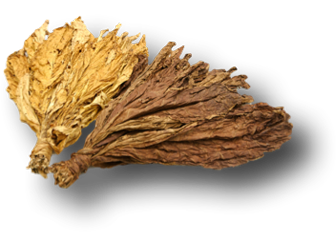

Κ. Παλαιολόγου 4, 65403, Καβάλα





Δημοσιεύτηκε στις 01.09.2023 / από tobacco
Content
This might include investing in a comfortable mattress—and if you’re sensitive to light and sound, blackout curtains or earplugs. Our goal is to help our visitors see that recovery is possible. With access to helpful information, resources, and support, we believe that you can overcome any challenge and that you can stop drinking. Recognizing and addressing the issue of needing alcohol to sleep is a critical step in dealing with potential alcoholism. It’s crucial to act promptly when experiencing signs of dependency.
Also, those who manage to adopt a healthier regime, post-alcohol detox tend to see improvements sooner. While the timeline described above represents a general pattern of sleep improvement after quitting alcohol, it’s important to recognize that individual experiences can vary significantly. Several factors can influence how quickly and to what extent sleep improves after giving up alcohol. The improved overall sleep quality and consistency have far-reaching effects on various aspects of life. Many people report increased daytime energy levels, better mood, and enhanced cognitive function. Sleep deprivation can be as impairing as being drunk, so the benefits of consistently good sleep cannot be overstated.
Quality sleep is essential for physical recovery, cognitive function, emotional regulation, and immune system support. When alcohol interferes with sleep, it can have far-reaching consequences on various aspects of health and daily life. This is why many people who quit drinking alcohol report significant improvements in their sleep quality and overall well-being. The interplay between alcohol consumption and sleep disorders is a critical area of concern for both individuals and healthcare professionals. Research has consistently demonstrated that excessive alcohol intake is correlated with poor sleep quality and can lead to or exacerbate a variety of sleep disorders.
Complete the form below to request a call and learn more about treatment options. Cognitive deficits can also improve substantially with abstinence, although the extent of brain recovery is not fully understood. Mental clarity improves with better concentration and memory function. Digestive health improves as the stomach lining heals, and energy levels stabilize.
If you struggled with things like restless leg syndrome, snoring, or sleep talking, there may be a sleep disorder at the heart of your problem. Sure, at first you feel cozy, warm, and relaxed – perfect for sleep. There are plenty of ways you can prepare your body for bed.
While drinking alcohol before bedtime may help you feel relaxed and sleepy, enjoying a nightcap puts you at risk of experiencing repeated wakings and low-quality sleep later in the night. Here are some tips that will make it easier for you to fall asleep without drinking. Exploring professional resources can be a vital step when addressing alcohol dependency for sleep. I recommend reaching out to healthcare providers like doctors or therapists who specialize in addiction and sleep disorders. They offer evaluations, discuss treatment options, and create personalized recovery plans.
Based on data from roughly 160,000 Sleep Foundation profiles, nearly 90% of respondents who regularly consume alcohol in the evening have reported at least one sleep-related problem. Yes, lifestyle changes significantly impact sleep quality during alcohol withdrawal. These adjustments, often emphasized in rehab programs, contribute to a smoother recovery process. After several months of sobriety, many individuals experience a full restoration of their natural sleep-wake cycle.
You will be more productive, where you can learn and problem solve better. Your ability to control your emotions and behavior will also improve. As an extended care treatment facility, Estadt Psychological serves to provide intensive recovery treatment for alcohol addiction as well as other life problems. Contact us today to see how we can help you or your loved one begin recovery. Lab studies show reductions in deep sleep and abnormalities in REM sleep in persons with more than a year of sobriety.
I didn’t want to get in the car and be marijuana addiction alone with my thoughts for the long drive home. I didn’t want to be home in time for the Sunday Scaries to set in. I dreaded the end of the good timing and the push back into a life I was trying to avoid for reason’s I don’t know because everything was fine, except me. I was an only child for much of my life, and I never wanted to be alone.
Research has shown that alcohol can increase the likelihood of multiple nighttime awakenings and reduce the restorative phase of REM sleep. Would one experience these alcohol withdrawal symptoms if they drank 2 to 3 drinks a night and then quit cold turkey? I have recently decided to quit in order to cut out my sugar in an effort to better my cholesterol. I haven’t slept well in eight days so I am searching for an answer.
??